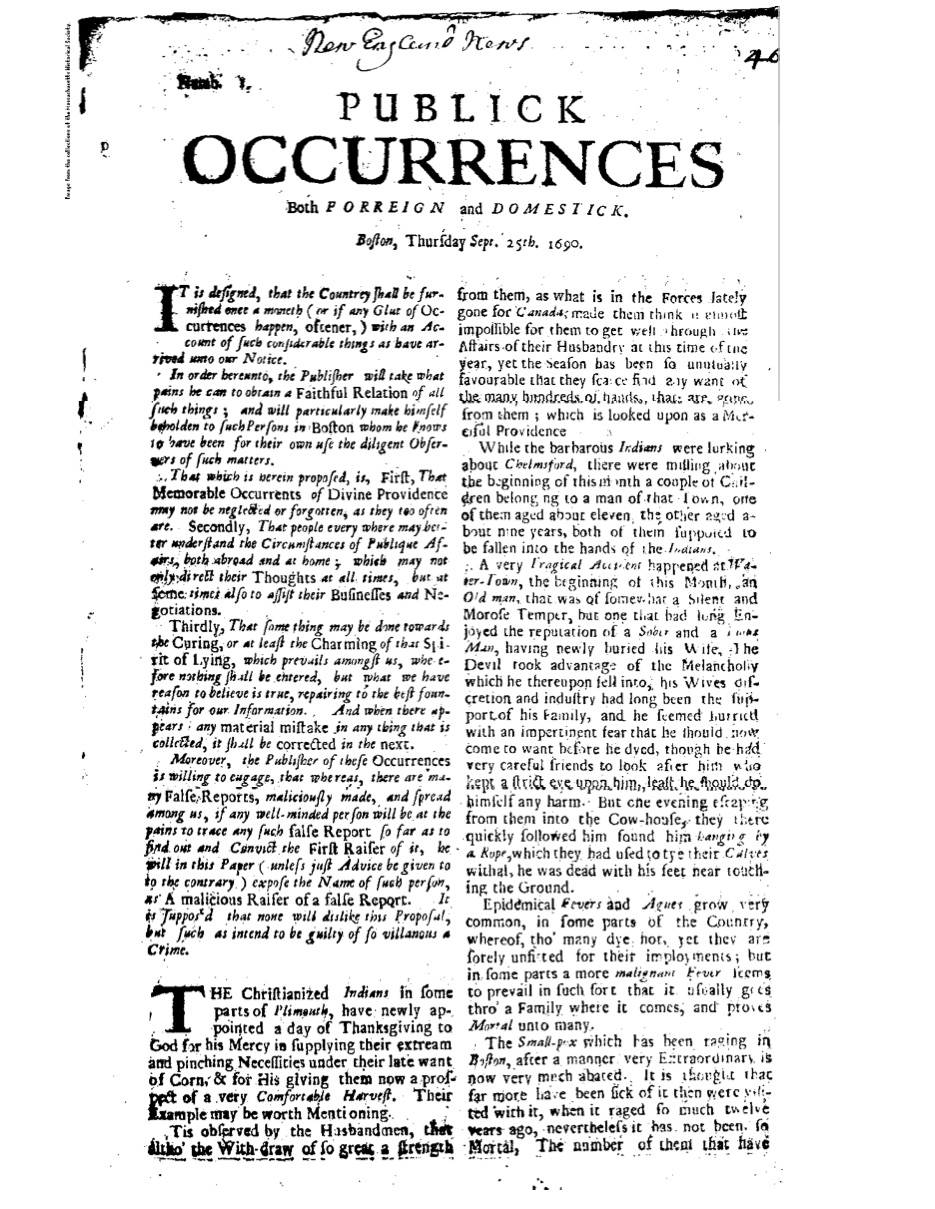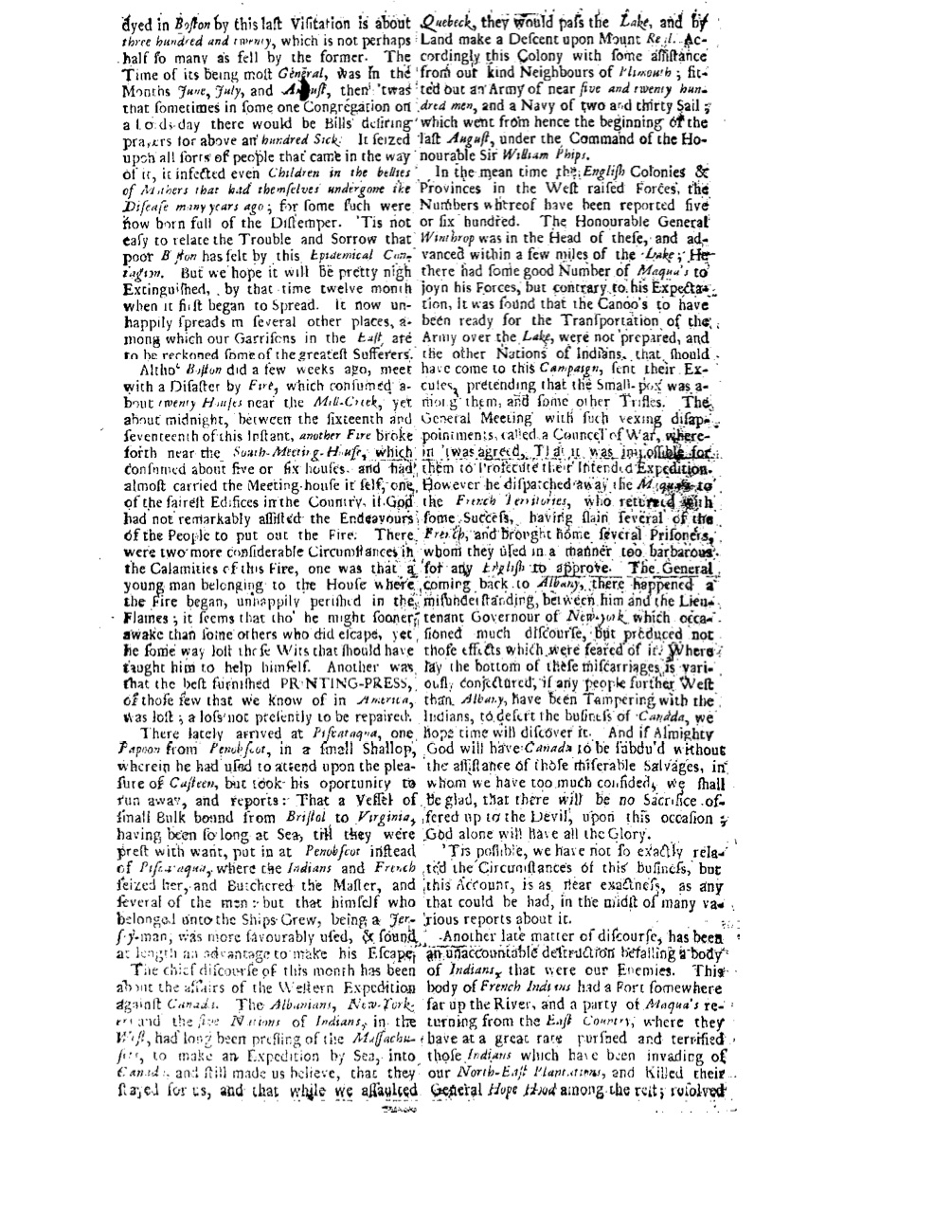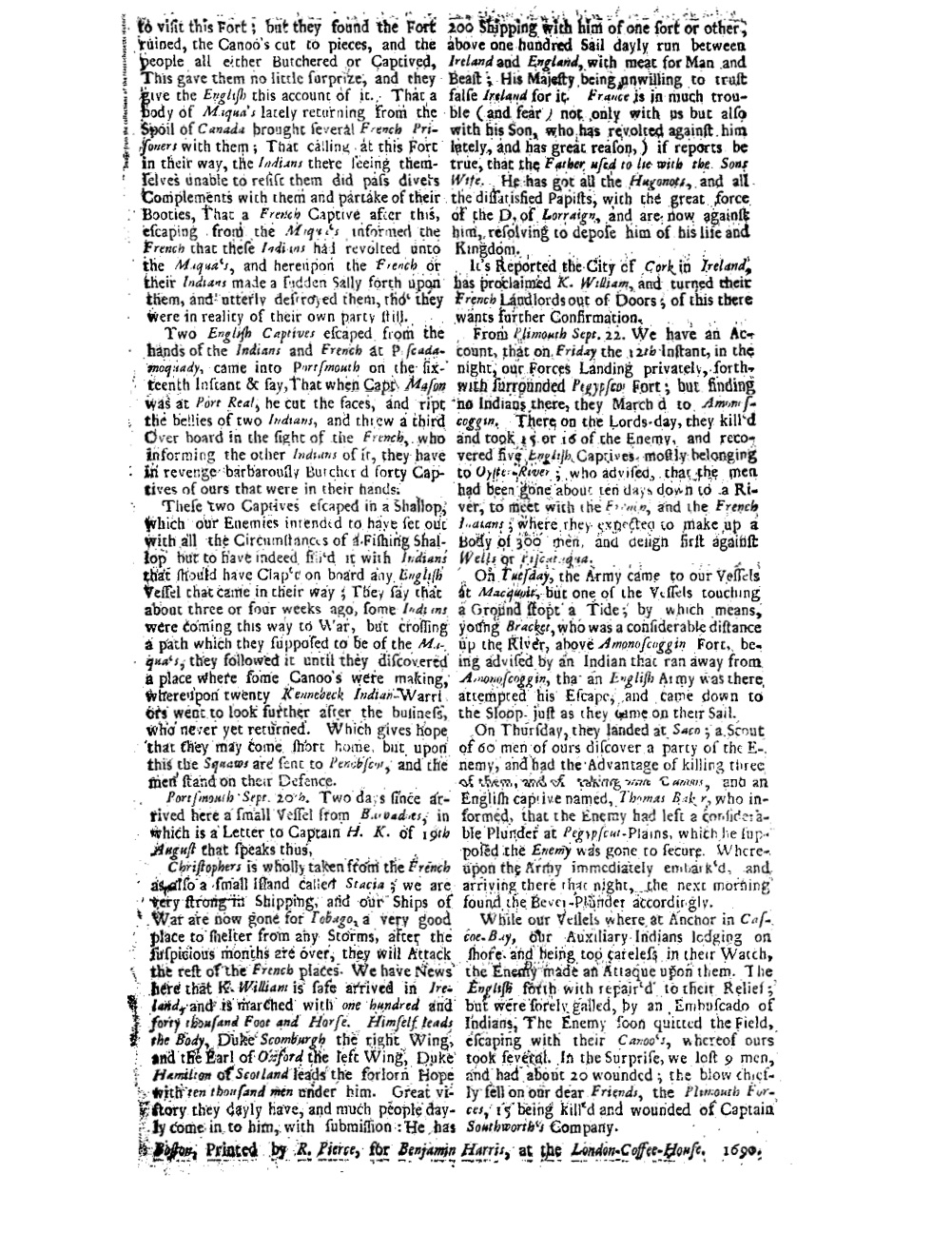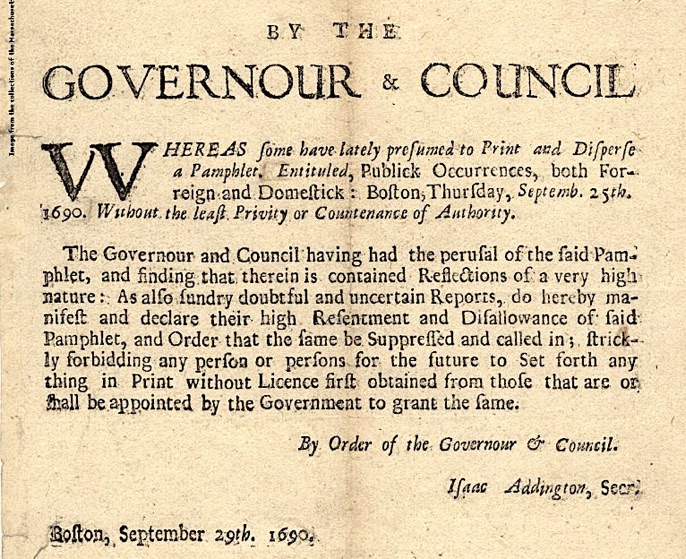Benjamin Harris
America’s First Editor/Publisher
of
PUBLICK OCCURRENCES
Both FORREIGN and DOMESTICK
Boston, September 25, 1690
Benjamin Harris (1673-1716) was a
vocal anti-Catholic London pamphleteer and editor of London’s Domestick Intelligence or News both from City and Country
which, it said, was “Published to prevent false Reports.” He was one of the “inventors”
of the fictitious 1678 “Popish Plot,” which alleged that Jesuits were planning to kill
King Charles II and install to the throne his Catholic brother. Harris was fined and
imprisoned several times and in 1686 he left with his family for Boston, where he opened
the London Coffee House (at today’s intersection of Washington and Court streets), in
which he printed and sold books. He published America’s first textbook, the hugely
popular New England Primer. Along with books, he was licensed
to sell “Coffee, Tea and Chucaletto”(most likely a chocolate drink).
On Sept. 25, 1690, he published
Publick Occurrences, a paper that measured 7.5x11.5 inches
and had text on three of its four pages--the fourth was left blank so the readers could
write their personal “news” or views before they passed the paper to neighbors. (Could
this have been a first attempt at blogging?) Its circulation was not known but above its
nameplate the only surviving issue has a hand written number “462.” Publick Occurrences was shut down four days after its first and
only issue by the “governour and council” because, the order said, the newspaper was
printed without permission and contained “doubtful and uncertain Reports.” (See copy of
the letter below.) The issue’s most controversial story was likely the one that alleged
that the king of France “used to lie with the Son’s Wife.” Such a story might have
seriously jeopardized Franco-British relations.
Harris’ first news item was about
the “the Christianized Indians in some parts of Plimouth,” who “have newly appointed a
day of Thanksgiving to God....” The paper also included such news items as several
confrontations among Indians and European settlers in New England, a Watertown farmer
who committed suicide because he was depressed over his wife’s death, items about
“Epidemical Fevers” and “Small-pox,” a “Disaster by Fire” that destroyed many houses
around the “South-Meeting-House” and “near the Mill-Creek,” and a report about a failed
“Western Expedition against Canada.” News items were not separated by headlines, but by
blank spaces and indentations.
But Harris’ publishing genius became
evident through his impressive foresight about his journalistic undertaking. In his
first section of text, which appeared in italics under the paper’s name and before the
actual news stories, he laid out his principles and goals. ( See photos below.)
Harris promised “the Country shall
be furnished once a moneth (or if any Glut of Occurrences happen, oftener) with an
Account of such considerable things as have arrived unto our Notice.” He also promised
to “take what pains he can to obtain a Faithful Relation of all such things” and would
rely on “such persons in Boston whom he knows to have been….diligent Observers of such
matters.”
“Memorable Occurrences of Divine
Providence may not be neglected or forgotten, as they often are,” Harris wrote, and
promised to do something “towards the Curing, or at least the Charming of that Spirit of
Lying, which prevails amongst us.”
Harris pledged that his paper’s news
stories would help people “better understand the Circumstances of Publique Affairs, both
abroad and at home” and never print anything except “what we have reason to believe is
true.”
Finally, Harris wrote, if a mistake
is made “it shall be corrected in the next” issue, and promised that those who spread
“False Reports, maliciously made” would be exposed as having committed a “villainous”
crime.
These are important commitments,
promises and ethical parameters that govern journalism even today. For Harris to have
made them in 1690 is as inspiring as it is hard to believe. But he did, and he set the
bar high for those who followed.
It is unfortunate that he did not
have a chance to practice what he promised. Issues of his paper were destroyed, except
for one copy that was sent to England and today can be found in the London Public
Records Office. In 1692 Massachusetts Gov. William Phipps appointed Harris as the
state’s printer. Harris returned to London in 1695, where he published the London Post, 1699-1706. He died in 1716.
***
Here are the three pages of the
original Publick Occurrences--the fourth page was blank.
Below them is the letter outlawing the newspaper.



